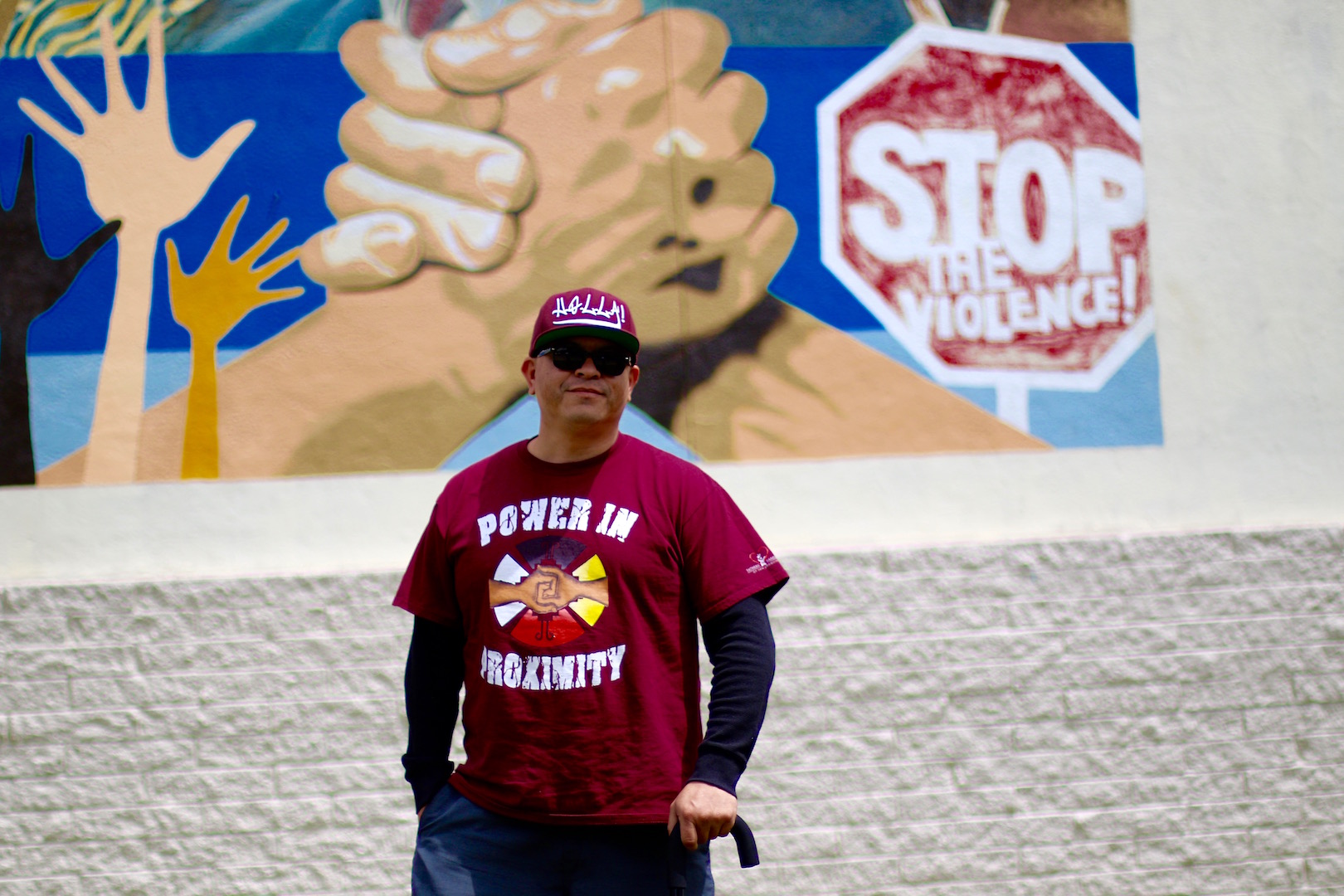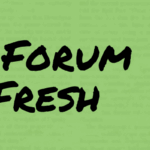Communities in the San Joaquin Valley rally for the health and wellbeing of their children while some policymakers threaten to cut access to food through the farm bill. Read on to learn more or click here to take action.
Beatriz Brajas wears a badge of her daughter’s photo at Día de los Niños, a gathering in Stockton to celebrate children in a Latinx and Black neighborhood. “It was my idea to celebrate our children, because we don’t have a day to honor them. I am here for my children and grandchildren,” she said. Brajas is part of Angeles, a support group of mothers who have lost their children to violence.
The Day of the Child celebrations, which Brajas spearheaded, took place before the House of Representatives voted 198 to 213 to defeat HR 2, a harmful bill that would have cut thousands of children in California off from SNAP/CalFresh, the food stamps program that affords food to millions. “We will have starvation if there are cuts to food stamps. There will be more crime, and our children will suffer,” said Sammy Nunez, the Executive Director of Fathers and Families of San Joaquin.
Fathers and Families was founded to create economic, social and spiritual renewal of communities of South Stockton. “We believe our neighborhoods need special representation to build our power and create opportunities for communities,” said Nunez.
Communities in the San Joaquin Valley grapple with poverty, incarceration and food insecurity in the heart of the breadbasket of America. This irony is not lost on Nunez. “This is the cruelest reality. We feed the world, yet we have the most punctuated food insecurity. This is the true story of California. You realize that the Golden State is not for all of us,” said Nunez.
According to CFPA, HR 2 would make states lose the option of using categorical eligibility to streamline enrollment into SNAP/CalFresh for low-income families who are struggling to make ends meet, but may earn a little bit more than the federal poverty level. They estimate that the removal of categorical eligibility would impact as few as 36,752 and as many 126,035 California households, all earning below 200% of the federal poverty level.
“HR 2 would also increase the risk of hunger for children by imposing unforgiving penalties,” said Jared Call, Managing Policy Advocate at California Food Policy Advocates (CFPA). According to Call, the bill proposes to take away food assistance for a year the first time and for three years the second time if SNAP participants fail to prove that they either have worked enough hours or qualify for an exemption. “These harsh rules would apply to thousands of families in California, putting children at risk if their parents are working, but can’t get enough hours at work to meet the requirement,” said Call.
House leadership has announced they will hold another vote on the farm bill by Friday, June 22. And the Senate is expected to introduce its version of the farm bill in early June. “While CFPA and our anti-hunger allies are pleased that this ill-conceived and harmful bill failed to pass, we must remain vigilant in the days ahead,” emphasized Call.
Beatriz Brajas shared it was important to celebrate Día de los Niños (Day of the Child) in a community that often feels ignored and forgotten by policymakers in California.
“Our children are the greatest gift we have. Unfortunately many are living in abject poverty in the fifth largest economy in the world. This is unacceptable and we need to demand reinvestment in our communities,” said Sammy Nunez, Executive Director of Fathers and Families of San Joaquin.
“There are many families that are underserved in Stockton. They are unable to afford fresh fruits and vegetables. The health indicators reveal that we have to work for everyone,” said Ben Sanchez, a communications officer at Fathers and Families.
“The House Farm Bill increases the risk of hunger for low income children by cutting their connection to free school meals. It will make it more difficult for low income families to qualify for help to pay for food if they own a car to get to home and work,” said Jared Call, Managing Policy Advocate at California Food Policy Advocates (CFPA).
“I think it’s very important to recognize that this community loves its children as any other community. Our children are just as sacred as any other children. Unfortunately they don’t witness that on a daily basis,” said Nunez.
“I think food stamps are very important, and cuts will severely impact my community. A large percentage of Stockton is at or below the poverty line. What we learned from conversations with parents is that hunger is a serious problem for our students here in Stockton. If a child does not have access to food at home, it severely impairs their ability to pay attention,” said Yovanna Bravo, Case Manager at Fathers and Families.
“Food is everything. Food is life. When you talk about air quality here, the water contamination, the lack of food security. This is vital for our survival. This is basic. When you don’t have that, you don’t have a community anymore,” said Nunez.
Learn how to get involved in farm bill advocacy to protect children’s access to food. link
Questions? Contact: Jared Call at 213.482.8200 ext 201













